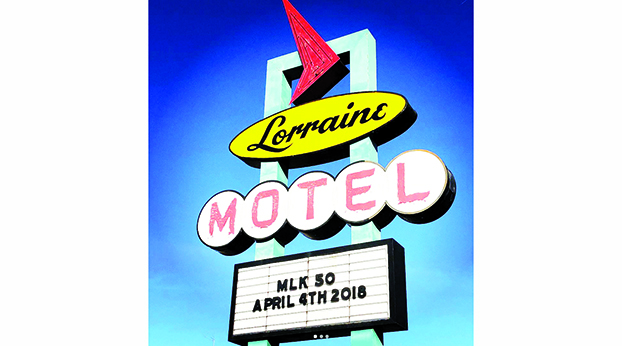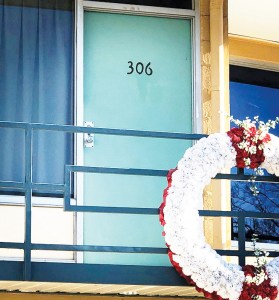Trip to civil rights museum one worth taking
Published 5:39 pm Thursday, January 14, 2021

- The Lorraine hotel in Memphis is the site of the assassinaton of Rev. Dr. Martin Luther King Jr. The hotel is now the National Civil Rights Museum. - Photo by Jeff Moreland
|
Getting your Trinity Audio player ready...
|

A wreath hangs on the balcony outside the room where Rev. Dr. Martin Luther King Jr. stayed at the Lorraine Motel in Memphis. The wreath marks the spot where King was assassinated in 1968. – Photo by Jeff Moreland
As we prepare to observe the 92nd birthday of Rev. Dr. Martin Luther King Jr., I find myself reflecting on a trip that taught me more about the history of our nation and brought even greater focus on some of the cruelest times imaginable in our nation’s history. It was a visit to Memphis, Tennessee, to the National Civil Rights Museum, and it was a trip well worth taking.
The Rev. Dr. Martin Luther King Jr. spent his life fighting for equality. He did so until his death on April 4, 1968, in Memphis.
King was in Memphis because of the ongoing sanitation workers’ strike that began after the deaths of two local sanitation workers earlier that year, which led to 1,300 black men who worked for the city’s sanitation department going on strike for safety improvements, as well as better wages.
King was shot on the balcony of the Lorraine Motel, and his death came just one day after he had delivered his “I’ve Been to the Mountaintop” speech. The motel became the site of the National Civil Rights Museum, a Smithsonian Affiliate, on July 4, 1991, and it opened to the public later that year.
The hotel balcony was adorned with a wreath shortly after King’s death, and a wreath still hangs there today, marking the approximate spot where King stood as he was shot by James Earl Ray from the bathroom window of a boarding house across the street.
Much of this is fact many of you probably already know, but inside the hotel, and the expanded museum built adjacent to it, lies a wealth of information on the battle King faced, and the one that in many ways continues today.
If you know it or not, it’s definitely a visit worth making to not only learn, but also refresh your attention on the importance of equality in our nation.
As my family and I walked through the museum, we were among people of all colors, and it was clear that people from all walks of life wanted to learn more of the history behind the civil rights movement, and what leaders like King and others lived and died for as part of the movement.
The museum is filled with displays providing information, but also gripping displays of the violence Black people endured.
One display that especially touched me was a Greyhound bus that had been burned during a firebombing in 1961, as members of the Ku Klux Klan attacked it in protest of the Freedom Riders who rode the bus seeking equality.
Other displays include a full-size lunch counter like the ones where many sit-ins took place as blacks were refused service, and others with videos like the one showing the violence against Black people who marched from Selma to Montgomery, Alabama, in March of 1965, in search of voting rights. They would receive those rights later that year with the passage of a piece of legislation known as The Voting Rights Act of 1965. You can even look into Room 306 of the motel, the room in which King stayed during his final days. The room is sealed off with a plexiglass barrier, but visitors can see it much as it looked when King stayed there in 1968.
An especially chilling part of the museum is the old boarding house across the street from the motel. That building is now known as the Legacy Building, and inside is the room where James Earl Ray spent his time before he assassinated King.
Visitors can look out of the bathroom window from the spot where Ray stood when he fired the shot that took King’s life. As you stand in that room and look out that window, it’s very sobering to realize that hatred could cause a person to commit such an act because of the color of a person’s skin.
It’s difficult to imagine treating another human being as if they are less of a person, or not a person at all, simply because of color.
Regardless of our color, we have it because God chose to make us that way, and we can’t make ourselves anything other than what we are by his grace.
If you have the opportunity to be in Memphis, or if you want to take a trip that will educate you about the world you live in, both its past and present, stop by the National Civil Rights Museum at the Lorraine Motel. The museum is currently temporarily closed due to COVID-19, but you can find updated hours and more information online at www.civilrightsmuseum.org.


